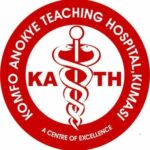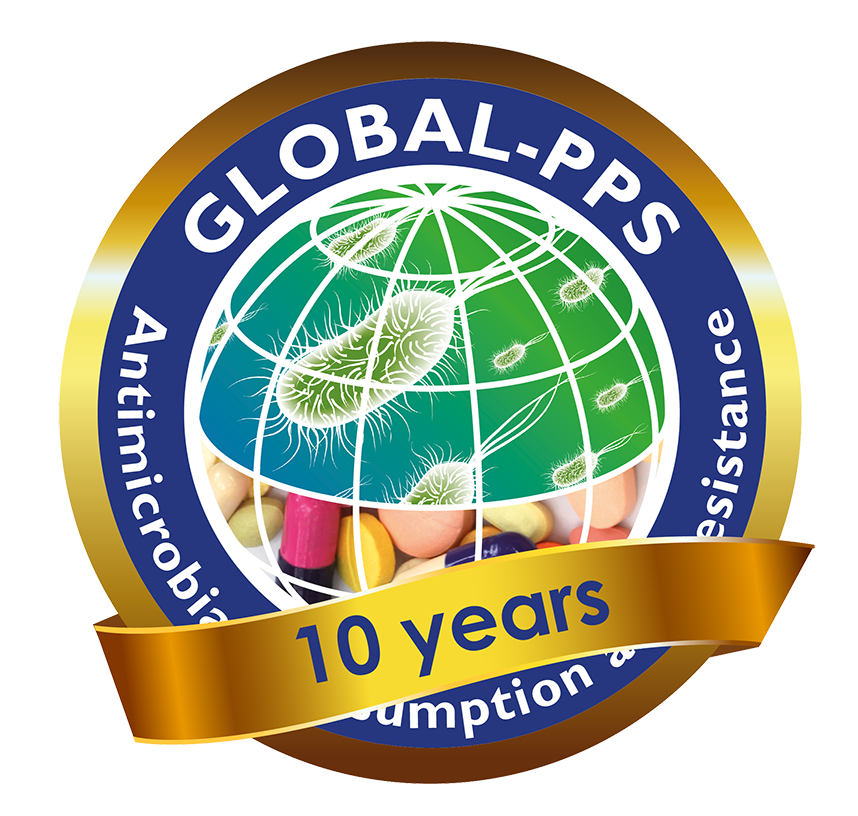Interview with Doctor Anthony Enimil
Doctor Anthony Enimil is a Paediatric Infectious Disease Specialist, based in the Komfo Anokye Teaching Hospital in Ghana. He is also a member of the Hospital Antimicrobial Stewardship Committee. In this interview, Anthony shares his experience with Global-PPS, the advantages of the study and some future challenges.

When and how did you start your collaboration with Global-PPS?
Anthony Enimil: My collaboration dates back to 2011. I met professor Mike Sharland at the 29th Annual European Society for Paediatric Infectious Diseases (ESPID) meeting in the Hague and that is when the discussion of collaborating began. In 2012, we participated in the ARPEC-PPS. This Point Prevalence Survey was conducted worldwide as part of the Antibiotic Resistance and Prescribing in European Children project and was a precursor for the Global-PPS methodology. At the time, the collaboration was limited to the paediatric department as I am a paediatrician myself. We’re now in our 10th year of working together with the University of Antwerp and the entire hospital is participating in the Global-PPS.
What are the concrete advantages of a Global Point Prevalence Study for your hospital?
Anthony Enimil: The study has ultimately led to establishing the Antimicrobial Stewardship (AMS) Committee in the hospital in 2021. Global-PPS helped us with performing our own local studies and getting an overview of our antibiotic prescribing habits in the different wards, resistant patterns, etc. However, it took a lot of time and effort to get there. It’s been challenging to make the hospitals understand the essence of AMS.
How did you use the results of Global-PPS for your hospital?
Anthony Enimil: The preliminary results made available to us through standardized Global-PPS feedback reports showed that, initially, stewardship wasn’t adhered to in terms of prescription according to guidelines for antibiotic therapy and duration of antibiotics for surgical prophylaxis (SP). Based on this, we made a case with the hospital management and stressed that a hospital-wide AMS programme was necessary. They agreed on creating an AMS committee to oversee the correct prescription of antibiotics, duration of SP, taking of samples, etc. So, Global-PPS had a direct influence on our positive results.
What are according to you the main challenges for the future when it comes to antimicrobial resistance in Ghana?
Anthony Enimil: The overarching challenge we face is the poor diagnostic capacity to confirm bacterial infections. We still struggle to take enough microbiological samples because we often don’t have the necessary culture bottles at our disposal. This is a huge logistical problem. A lot of doctors prescribe antibiotics without knowing if the patient has a bacterial, viral or even fungal infection because they aren’t able to perform the necessary lab work. On top of that, the principle of prescribing antibiotics for every fever lingers on.
Another big challenge, especially for low- and middle-income countries, is harmonising our system by implementing standardised processes. Even though we have antimicrobial prescribing guidelines, doctors do what they want in their private work settings. They’re likely to prescribe antibiotics, but when patients don’t respond to this or their health deteriorates further, doctors refer them to the hospital. However, we are then very limited in our options and unable to perform high-level diagnostics to determine what has to be treated and to find a solution.
In the upcoming years, what do you hope to achieve with Global-PPS?
Anthony Enimil: The Ghana National Action Plan on Antimicrobial Resistance ended in 2021 after being operational for 5 years. Key stakeholders will review the progress made to inform the strategic plan for 2022-2026. Regarding this, I hope that we will have more local data and will implement the antimicrobial policy, both at the hospital and national level. The challenge lies in the logistics of equipping the labs so that the technicians can do their work. You can’t do AMS without taking microbiological cultures, which means providing us with the necessary tools. We need to keep engaging the hospital administration and management in order for them to understand that this is key.
Another important goal to achieve is to continue creating awareness with doctors around the origin of fevers. At the moment, virtually every person with a fever is thought to have a bacterial infection, with the result that antibiotics are prescribed very frequently. This inappropriate prescribing also shows up in the data from our publications. These are obstacles we need to overcome and we aren’t giving up!
About Anthony Enimil

Dr. Anthony Enimil is a Paediatric Infectious Diseases Specialist with an expertise in general paediatrics and infectious diseases. He holds a MPhil in Infectious Diseases Management and a Fellowship in Epidemiology and Biostatistics. Anthony is head of the paediatric/adolescents/young adults HIV/TB clinic at Komfo Anokye Teaching Hospital.
He is very passionate about building systems in health institutions in Lower Middle-Income Countries (LMIC), improving diagnostics and antimicrobial usage.
